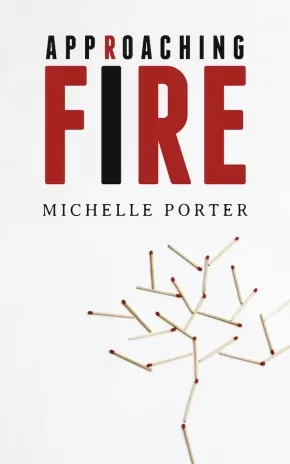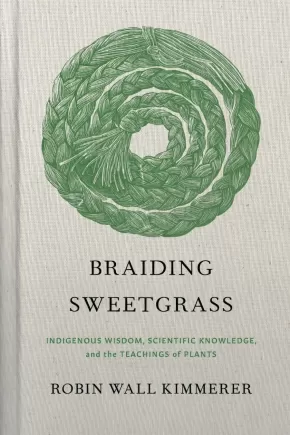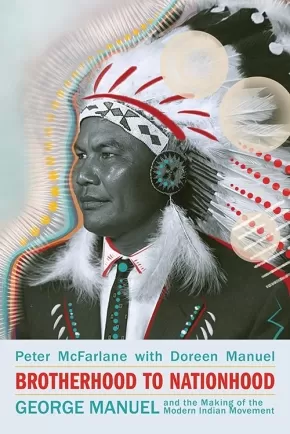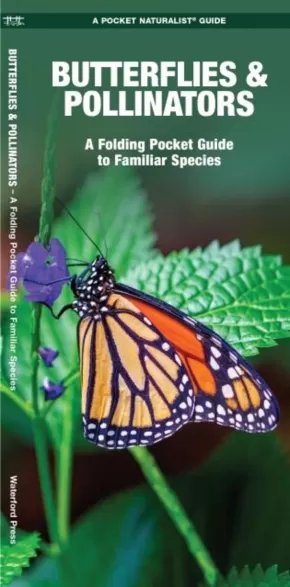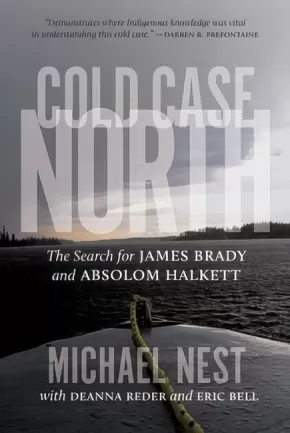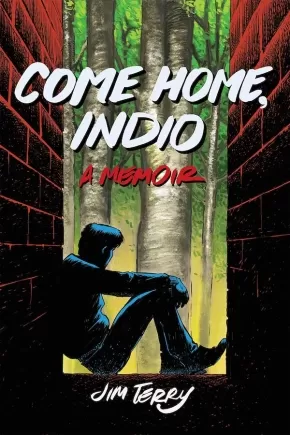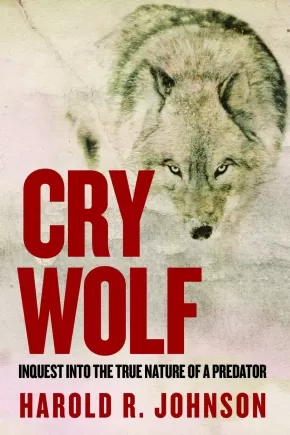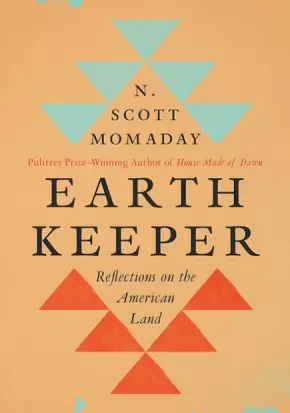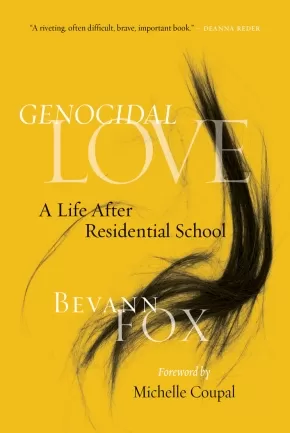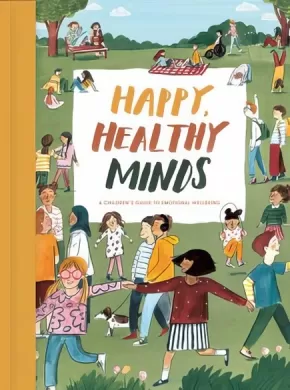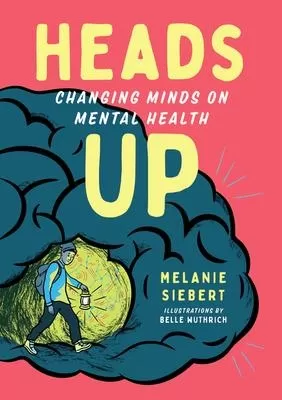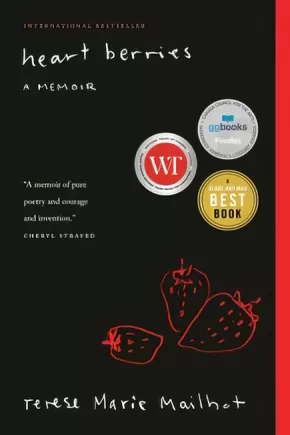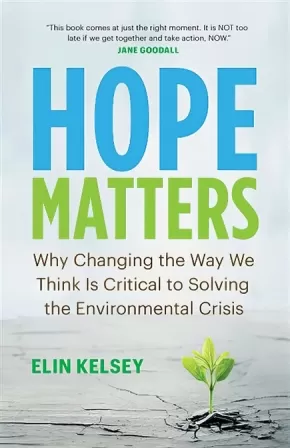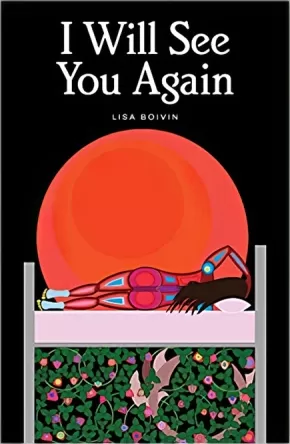
Non-Fiction
301
-
315
of
748 Results;
Sort By
Go To
of 50
Approaching Fire
$19.95
Format:
Paperback
Text Content Territories:
Indigenous Canadian; Métis;
Reading Level: N/A
ISBN / Barcode: 9781550818536
Synopsis:
Synopsis:
In Approaching Fire, Michelle Porter embarks on a quest to find her great-grandfather, the Métis fiddler and performer Léon Robert Goulet. Through musicology, jigs and reels, poetry, photographs, and the ecology of fire, Porter invests biography with the power of reflective ingenuity, creating a portrait which expands beyond documentation into a private realm where truth meets metaphor.
Weaving through multiple genres and traditions, Approaching Fire fashions a textual documentary of rescue and insight, and a glowing contemplation of the ways in which loss can generate unbridled renewal.
Awards
- The Miramichi Reader's 2020 Most Promising Author Award
Reviews
“I wanted to write in a magical and poetic voice, but more than that I wanted to read magical books - true and straight up poetic stories that fulfill the past. Michelle is such a writer. This book is the art Louis spoke of that begins a much needed conversation: Métis nation or Manitoba?” - Lee Maracle
“I've never read a book quite like this before… Approaching Fire is a documentary you can hold in your hands, in which, rather than being a passive witness to scenes unfolding, you become immersed in a river of poetry. Author Michelle Porter uses a mixture of genres to create an account of her journey to uncover the history of her Métis roots, stretching from Newfoundland to British Columbia, Alberta to Saskatchewan, and finally digging deeply into Manitoba. Michelle travels through the stories she was raised on, using them as a base from which to understand the accounts of others, learning all she can about her Great Great Grandfather, Léon Robert (Bob) Goulet, renowned fiddler and performer. Her Pépé. In his story, her story, a wider history of the Métis people is told. A history of racial discrimination, stolen land rights, and the question of what truly unites and defines Métis identity. This book blazes with poetic beauty, and a voice Canada needs to hear.”— More Books Than Days
Additional Information
192 pages | 5.25" x 8.25" | Paperback
Braiding Sweetgrass: Indigenous Wisdom, Scientific Knowledge and the Teachings of Plants (HC)
$54.50
Format:
Hardcover
Text Content Territories:
Indigenous American; Native American; Anishinaabeg; Potawatomi; Indigenous;
ISBN / Barcode: 9781571311771
Synopsis:
Synopsis:
Updated with a new introduction from Robin Wall Kimmerer, the special edition of Braiding Sweetgrass celebrates the book as an object of meaning that will last the ages. Beautifully bound with a new cover featuring an engraving by Tony Drehfal, this edition includes a bookmark ribbon, a deckled edge, and five brilliantly colored illustrations by artist Nate Christopherson. In increasingly dark times, we honor the experience that more than 350,000 readers in North America have cherished about the book—gentle, simple, tactile, beautiful, even sacred—and offer an edition that will inspire readers to gift it again and again, spreading the word about scientific knowledge, indigenous wisdom, and the teachings of plants.
As a botanist, Robin Wall Kimmerer has been trained to ask questions of nature with the tools of science. As a member of the Citizen Potawatomi Nation, she embraces the notion that plants and animals are our oldest teachers. In Braiding Sweetgrass, Kimmerer brings these two lenses of knowledge together to take us on “a journey that is every bit as mythic as it is scientific, as sacred as it is historical, as clever as it is wise” (Elizabeth Gilbert).
Drawing on her life as an indigenous scientist, and as a woman, Kimmerer shows how other living beings—asters and goldenrod, strawberries and squash, salamanders, algae, and sweetgrass—offer us gifts and lessons, even if we've forgotten how to hear their voices. In reflections that range from the creation of Turtle Island to the forces that threaten its flourishing today, she circles toward a central argument: that the awakening of ecological consciousness requires the acknowledgment and celebration of our reciprocal relationship with the rest of the living world. For only when we can hear the languages of other beings will we be capable of understanding the generosity of the earth, and learn to give our own gifts in return.
Educator Information
Includes an updated introduction from the author.
Additional Information
456 pages | 5.50" x 8.50" | Hardcover
Brotherhood to Nationhood: George Manuel and the Making of the Modern Indian Movement
$32.95
Format:
Paperback
Text Content Territories:
Indigenous Canadian; First Nations; Salish; Interior Salish; Secwepemc (Shuswap);
ISBN / Barcode: 9781771135108
Synopsis:
Synopsis:
Charged with fresh material and new perspectives, this updated edition of the groundbreaking biography From Brotherhood to Nationhood brings George Manuel and his fighting tradition into the present.
George Manuel (19201989) was the strategist and visionary behind the modern Indigenous movement in Canada. A three-time Nobel Peace Prize nominee, he laid the groundwork for what would become the Assembly of First Nations and was the founding president of the World Council of Indigenous Peoples. Authors Peter McFarlane and Doreen Manuel follow him on a riveting journey from his childhood on a Shuswap reserve through three decades of fierce and dedicated activism.
In these pages, an all-new foreword by celebrated Mi'kmaq lawyer and activist Pam Palmater is joined by an afterword from Manuel’s granddaughter, land defender Kanahus Manuel. This edition features new photos and previously untold stories of the pivotal roles that the women of the Manuel family played and continue to play in the battle for Indigenous rights.
Reviews
“Brotherhood to Nationhood is more than just a biography of the life of George Manuel; it demonstrates the roots of an Indigenous internationalism and political theory that is grounded in the ethics, knowledge, and practices of the Secwepemc people.” – Leanne Betasamosake Simpson, author of As We Have Always Done
Educator Information
Table of Contents
Foreword - Dr. Pamela Palmater
Preface - Peter McFarlane
Preface - Doreen Manuel
Part I. The Neck of the Chicken
1. Paradise, Paradise Lost, 1960
2. The Hard-Luck Shuswap Kid, 1920–1932
3. White Plague, Red Victims, 1932–1954
4. Local Agitator to Provincial Leader, 1955–1960
5. A Future for Your Children, 1960–1963
Part II. Building the National Movement
6. Community Development and the Arthur Laing Gang, 1965–1967
7. Down the Garden Path: Chretien Andras Consultations, 1968–1969
8. From White Paper to Red Paper, 1969–1970
9. The National Chief
10. The National Indian Philosophy, 1971–1972
Part III. Indian Shogun
11. International Travels
12. Land Title and the James Bay Battle, 1972–1973
13. Red Power
14. Political Eruptions in British Columbia, 1975
15. A Voice for the Fourth World, 1975–1976
16. Back to British Columbia,1976–1977
17. The Peoples’ Movement, 1977–1979
18. Constitutional Express, 1980
Part IV. Final Days
19. European Express, 1981–1982
20. Passing the Torch, 1982–1989
Epilogue
Afterword - Kanahus Manuel
Additional Information
402 pages | 6.00" x 9.00" | Revised, 2nd Edition
Buck Naked Kitchen: Radiant and Nourishing Recipes to Fuel Your Health Journey
$35.00
Format:
Hardcover
Text Content Territories:
Indigenous Canadian; First Nations; Cree (Nehiyawak);
Reading Level: N/A
ISBN / Barcode: 9780735236813
Synopsis:
Synopsis:
Beautiful and delicious gluten-free, grain-free, and dairy-free recipes, fully endorsed by Whole30.
As millions of people know, one of the toughest things about completing the Whole30 is figuring out what to eat the other 335 days of the year. Kirsten Buck, creator of Buck Naked Kitchen, struggled with her weight and chronic eczema for years before she transformed her life through food. She adopted a mostly paleo way of eating--gluten-free, grain-free, dairy-free, healthy fats, no refined sugars--and experienced dramatic weight loss. Soon after she went on to win the first-ever "Next Whole30 Star" competition and is now a certified holistic nutritionist, sharing delicious and beautiful recipes on her blog and Instagram with thousands of fans. From her Pesto Chicken Salad Sandwich for lunch, to Moroccan Lamb Stew for dinner, to the stunning Summer Berry Galette to satisfy your sweet tooth, there is something for every taste. In addition, there are recipe basics for making your own mayo, yogurt, salad dressings, tahini, and more, which prove that healthy eating doesn't have to break the bank.
Reviews
“[Buck Naked Kitchen] combines Kirsten’s education as a certified holistic nutritionist with her background and experience focusing on whole foods and creating healthy, approachable and delicious meals. Not only is every recipe gluten, grain AND dairy-free, did I also mention the Manitoba favourite: chicken tenders and HONEY DILL?! You gotta try it!”—Travel Manitoba
What I see in this book is a woman showing up as her truest, most authentic self, using food to speak to us, to connect with us, and to show us and herself love. Kirsten has brought her journey into the light, and the joy, vibrancy, and newfound confidence with which she both cooks and moves through this world glows through these pages.”—from the Foreword by Melissa Urban, Whole30 Co-Founder and CEO
“There are so many classic recipe staples in Kirsten's cookbook that it deserves a permanent place on every kitchen counter! I felt like she invited me into her home and showed me how to cook nourishing food from scratch. The photography is beautiful and Kirsten's approach to food is so effortless and natural.”—Joy McCarthy, bestselling author of Joyous Health and The Joyous Cookbook
Additional Information
272 pages | 8.25" x 9.31" | Full-colour photos throughout | Hardcover
Butterflies & Pollinators: A Folding Pocket Guide to Familiar Species
$11.95
Format:
Pamphlet
Reading Level: N/A
ISBN / Barcode: 9781620054666
Synopsis:
Synopsis:
Some of the most vibrant colors and patterns in the Animal Kingdom are found among butterflies. Gawdy swallowtails, exquisite gossamer-wings, and a multitude of eye-catching brushfoots are particular standouts, though plenty of whites, sulphurs, metalmarks, and skippers are also adorned with splendid markings. Flowering plants across North America attract some 700 butterfly species as well as thousands of moths, bees, wasps, flies, and beetles, not to mention some hummingbirds and bats. This portable reference is a handy tool for those wishing to deepen their understanding of butterflies and other colorful pollinators. It features beautiful illustrations of 70 familiar butterflies and moths as well as some especially common larvae and pupae. Also included are notes on life cycles and other common pollinators. Laminated for durability, this lightweight, 12-panel folding pocket guide is a terrific resource for educators, learners, naturalists, and gardeners.
Additional Information
12 pages | 4.10" x 8.35"
Cold Case North: The Search for James Brady and Absolom Halkett
$24.95
Format:
Paperback
Text Content Territories:
Indigenous Canadian; First Nations; Cree (Nehiyawak); Métis;
Grade Levels: 12; University/College;
ISBN / Barcode: 9780889777491
Synopsis:
Synopsis:
For fans of true crime, an unsolved mystery of missing persons, police conspiracies, and private investigations in an Indigenous community in northern Canada.
Métis leader James Brady was one of the most famous Indigenous activists in Canada. A communist, strategist, and bibliophile, he led Métis and First Nations to rebel against government and church oppression. Brady’s success made politicians and clergy fear him, and he had enemies everywhere.
In 1967, while prospecting in Saskatchewan with Cree Band Councillor and fellow activist Absolom Halkett, both men vanished without a trace from their remote lakeside camp. For 50 years rumours swirled of secret mining interests, political intrigue, assassination, and murder. Cold Case North is the story of how a small team, with the help of a local Indigenous community, exposed police failure in the original investigation, discovered new clues and testimony, and gathered the pieces of the North’s most enduring missing persons puzzle.
Reviews
“This engrossing account charts the efforts of three dedicated people to determine the fate of two missing Indigenous men in the north of Canada. [...] Meticulously researched, this smoothly written tale of injustice showcases the authors’ tenacity and arouses the reader’s indignation. This is a scathing rebuke of the RCMP’s failure to take the case of missing Indigenous people seriously.” —Publisher's Weekly
“Like too many cases involving missing and murdered Indigenous people, authorities failed to ensure that Brady and Halkett’s deaths were properly investigated. This book helps get to the bottom of the fate of these two men, and demonstrates why investigators should never dismiss the knowledge of Indigenous peoples.” —Darren Prefontaine, author of Gabriel Dumont
“Cold Case North is part true crime thriller, part gripping mystery about the disappearance of Métis legend James Brady and Absolom Halkett in northern Saskatchewan. It is also about Indigenous knowledge, investigative incompetence, and the stuff of legend.” —Paul Seesequasis, author of Blanket Toss Under Midnight Sun
“A fascinating search for the truth, Cold Case North unravels the layers of a decades’ old mystery. It is about how communities hold knowledge for generations, and how missing loved ones are never forgotten.” —Katherena Vermette, author of River Woman and The Break
Additional Information
272 pages | 5.00" x 7.00"
Come Home, Indio: A Memoir
$30.95
Format:
Paperback
Text Content Territories:
Indigenous American; Native American; Ho-Chunk (Winnebago);
ISBN / Barcode: 9781951491048
Synopsis:
Synopsis:
A brutally honest but charming look at the pain of childhood and the alienation and anxiety of early adulthood.
In his memoir, we are invited to walk through the life of the author, Jim Terry, as he struggles to find security and comfort in an often hostile environment. Between the Ho-Chunk community of his Native American family in Wisconsin and his schoolmates in the Chicago suburbs, he tries in vain to fit in and eventually turns to alcohol to provide an escape from increasing loneliness and alienation. Terry also shares with the reader in exquisite detail the process by which he finds hope and gets sober, as well as the powerful experience of finding something to believe in and to belong to at the Dakota Access Pipeline resistance at Standing Rock.
Reviews
"fortunately for readers of this raw and intimate graphic memoir, Terry never fully lets go of his youthful vulnerability. . . . Reckoning with sobriety requires connection and humility, as Terry makes the case for with sincerity and beauty, as he ties his recovery to his spiritual homecoming.” —Starred Review, Publishers Weekly.
“Terry, known for his outstanding superhero illustrations, turns the lens inward in this brutally honest memoir. . . . An exceptionally well-told story with no easy answers but an ending that will inspire.” —Starred Review, Booklist.
“Illuminated by bursts of both joy and sorrow. With humbling sensitivity and candor, Jim shares with us his personal journey down emotionally complex paths towards home.” —TIMOTHY TRUMAN, author of Marvel Comics’ Conan series.
“An epic memoir. Terry has a way with words — his pithy writing skillfully mixes nostalgia and melancholy. But it his gorgeous, inventive, black-and-white artwork that makes this book so memorable.”— JOSH NEUFELD, author of A.D.: New Orleans After the Deluge
Educator Information
Recommended for ages 16+
Additional Information
240 pages | 6.00" x 9.00"
Cry Wolf: Inquest into the True Nature of a Predator (1 in Stock)
$16.95
Format:
Paperback
Text Content Territories:
Indigenous Canadian;
ISBN / Barcode: 9780889777385
Synopsis:
Synopsis:
“Required reading for anyone invested in our shared future with these powerful and complex creatures. ” —John Vaillant, author of The Tiger and The Golden Spruce
Growing up on a northern trap line, Harold Johnson was taught to keep his distance from wolves. For decades, wolves did the same for humans. But now this seems to be changing. In 2005, twenty-two-year-old Kenton Carnegie was killed in a wolf attack near his work camp. Part story, part forensic analysis, Cry Wolf examines this and other attacks, showing how we fail to take this apex predator seriously at our own peril.
Reviews
“A crucial and timely examination of our shifting relationship to the land in general and the Canis lupus in particular. ” —Eden Robinson, author of Son of a Trickster
“Insightful . . . . Johnson eloquently argues that Traditional Ecological Knowledge and the wisdom of Indigenous people can help us better understand the true nature of predators such as wolves. ” —Cristina Eisenberg, PhD, author of The Wolf’s Tooth and The Carnivore Way
Additional Information
160 pages | 5.00" x 7.50"
Earth Keeper: Reflections on the American Land
$21.99
Format:
Hardcover
Text Content Territories:
Indigenous American; Native American; Kiowa;
ISBN / Barcode: 9780063009332
Synopsis:
Synopsis:
A magnificent testament to the earth, from Pulitzer Prize-winning novelist and poet N. Scott Momaday.
One of the most distinguished voices in American letters, N. Scott Momaday has devoted much of his life to celebrating and preserving Native American culture, especially its oral tradition. A member of the Kiowa tribe who was born and grew up on Indian reservations throughout the Southwest, Momaday has an intimate connection to the land he knows well and loves deeply.
In Earth Keeper: Reflections on the American Land, he reflects on his native ground and its influence on his people. “When I think about my life and the lives of my ancestors, I am inevitably led to the conviction that I, and they, belong to the American land. This is a declaration of belonging. And it is an offering to the earth.” he writes.
Momaday recalls stories of his childhood, stories that have been passed down through generations, stories that reveal a profound and sacred connection to the American landscape and a reverence for the natural world.
In this moving and lyrical work, he offers an homage and a warning. Momaday reminds us that the Earth is a sacred place of wonder and beauty; a source of strength and healing that must be protected before it’s too late. As he so eloquently yet simply expresses, we must all be keepers of the Earth.
Reviews
“Poets and storytellers have always reminded us of our spiritual connections to the land and the world around us — passed along through dreams, stories, memories, and mythologies. Scott Momaday skillfully continues this tradition in Earth Keeper, from which we can all learn and benefit.”— Robert Redford
“Earth Keeper is a prayer for continuity in these days of uncertainty. I cannot tell you why I loved this book, I can only tell you I wept my way through it. Each page brought me closer to myself, a self I had lost in the pandemic. We need Scott Momaday's calm, clear prose and stories. Words are medicine. There is wisdom in sharing what one knows, especially at a time when we know so little. ‘Let me say my heart,’ he says. And he does.”— Terry Tempest Williams, author of Erosion: Essays of Undoing
"Dazzling. . . . In glittering prose, Momaday recalls stories passed down through generations, illuminating the earth as a sacrosanct place of wonder and abundance. At once a celebration and a warning, Earth Keeper is an impassioned defense of all that our endangered planet stands to lose."— Esquire
“Wonder abounds in these pages. . . . Short chapters of prose that read almost like prayers to the natural world.”— Kirkus Reviews
“Short but satisfying. . . . Using lyrical, heartfelt language, [Momaday] looks back on a life lived close to nature, and on the joy that natural wonders have given him. . . . At a time when bad news is in plentiful supply, readers will find Momaday’s words refreshing and comforting in their sincerity.”— Publishers Weekly
"A profound reflection on humanity's relationship with its terrestrial home, the planet Earth."— Booklist
“A collection of short essays as multilayered and majestic as the landscape that has been present in everything that Momaday has written. . . . [A] poetic love letter to the Earth.”— Minneapolis Star Tribune
Educator Information
From the Author's Note: "This book is a very personal account, a kind of spiritual autobiography."
Additional Information
80 pages | 5.00" x 7.12"
Genocidal Love: A Life after Residential School
$21.95
Text Content Territories:
Indigenous Canadian; First Nations; Cree (Nehiyawak);
Grade Levels: 12; University/College;
ISBN / Barcode: 9780889777415
Synopsis:
Synopsis:
How can we heal in the face of trauma? How can we transform intergenerational pain into a passion for community and healing?
Presenting herself as “Myrtle,” residential school survivor and Indigenous television personality Bevann Fox explores essential questions by recounting her life through fiction. She shares memories of an early childhood filled with love with her grandparents—until she is sent to residential school at the age of seven. Her horrific experiences of abuse there left her without a voice, timid and nervous, never sure, never trusting, affecting her romantic relationships and family bonds for years to come.
This is the story of Myrtle battling to recover her voice. Genocidal Love is a powerful confirmation of the long-lasting consequences of residential school violence —and a moving story of finding a path towards healing.
Awards
- 2021 Indigenous Voices Awards winner for Published Prose in English: Creative Nonfiction and Life-Writing
Reviews
“A riveting, often difficult, brave, important book. ” —Deanna Reder, Chair, Department of Indigenous Studies, Simon Fraser University
“A riveting and courageous reflection. . . . Genocidal Love is unique in its detailed account of the often re-traumatizing effects of the legal and bureaucratic barriers of compensation programs predating the Truth and Reconciliation Commission. ” —Jesse Rae Archibald-Barber, editor of kisiskâciwan and co-editor of Performing Turtle Island
“Fox tears beauty from the jaws of genocide, daring to claim love beyond settler imaginings—love that nurtures decolonial futures and makes possible a more just world. ”—Sam McKegney, author of Magic Weapons and Masculindians
Educator Information
A forward from Michelle Coupal explains more about "Genocidal Love—a story that Bevann tells about herself outside the boundaries of what constitutes fiction and non-fiction".
Additional Information
256 pages | 5.00" x 7.00"
Happy, Healthy Minds: A Children's Guide to Emotional Wellbeing
$38.50
Format:
Hardcover
ISBN / Barcode: 9781912891191
Synopsis:
Synopsis:
An essential guide to emotional well-being for children; tackling everyday issues to facilitate happier, healthier lives. Our minds are beautifully complicated and brilliant machines. For much of our lives, these machines run efficiently with minimal maintenance. However, just like our other organs, they do require some proper attention every now and then. Recognizing this at an early age can only help as children progress into adulthood. Happy, Healthy Minds is a guide designed to help children become more aware of their emotional needs and examines a range of topics that might give their minds difficulties, for example: - when parents don’t seem to understand us.
Reviews
"Happy, Healthy Minds is an engrossing and effective read for children aged 10-16 and a must have resource for home educators." -School Reading List
"Cheerful illustrations interspersed amongst sensible matter of fact text go really well together in this title, a guide to emotional well-being for children. Informative without being preachy." -School Libraries Group
"This is a great resource to help children learn how to have a happier and healthier life especially in the way they think. My daughters loved this book. It’s definitely one we’ll return to again and again." -Netgalley review
Educator Information
Recommended for ages 10+
Additional Information
176 pages | 7.51" x 9.99"
Heads Up: Changing Minds on Mental Health
$24.95
Artists:
Format:
Paperback
Text Content Territories:
Indigenous;
ISBN / Barcode: 9781459819115
Synopsis:
Synopsis:
Featuring real-life stories of people who have found hope and meaning in the midst of life’s struggles, Heads Up: Changing Minds on Mental Health is the go-to guide for teenagers who want to know about mental health, mental illness, trauma and recovery. For too long, mental health problems have been kept in the shadows, leaving people to suffer in silence, or worse, to be feared, bullied or pushed to the margins of society where survival is difficult.
This book shines a light on the troubled history of thinking about and treating mental illness and tells the stories of courageous pioneers in the field of psychiatry who fought for more compassionate, respectful and effective treatments. It provides a helpful guide to the major mental health diagnoses along with ideas and resources to support those who are suffering. But it also moves beyond a biomedical focus and considers the latest science that shows how trauma and social inequality impact mental health. The book explores how mental health is more than just “in our heads” and includes the voices of Indigenous people who share a more holistic way of thinking about wellness, balancing mind, body, heart and spirit. Highlighting innovative approaches such as trauma-informed activities like yoga and hip-hop, police mental health teams, and peer support for youth, Heads Up shares the stories of people who are sparking change.
Educator Information
Recommended for ages 12+.
Keywords / Subjects / Themes: youth mental health, mental health, anxiety, recovery, ending stigma, Indigenous youth.
Additional Information
192 pages | 6.00" x 8.50"
Heart Berries: A Memoir (PB)
$19.95
Format:
Paperback
Text Content Territories:
Indigenous Canadian; First Nations; Salish; Coast Salish; Sto:lo; Seabird Island;
ISBN / Barcode: 9780385691161
Synopsis:
Synopsis:
Guileless and refreshingly honest, Terese Mailhot's debut memoir chronicles her struggle to balance the beauty of her Native heritage with the often desperate and chaotic reality of life on the reservation.
Heart Berries is a powerful, poetic memoir of a woman's coming of age on the Seabird Island Indian Reservation in British Columbia. Having survived a profoundly dysfunctional upbringing only to find herself hospitalized and facing a dual diagnosis of Post Traumatic Stress Disorder and Bipolar II, Terese Mailhot is given a notebook and begins to write her way out of trauma. The triumphant result is Heart Berries, a memorial for Mailhot's mother, a social worker and activist who had a thing for prisoners; a story of reconciliation with her father--an abusive drunk and a brilliant artist--who was murdered under mysterious circumstances; and an elegy on how difficult it is to love someone while dragging the long shadows of shame.
Mailhot "trusts the reader to understand that memory isn't exact, but melded to imagination, pain and what we can bring ourselves to accept." Her unique and at times unsettling voice graphically illustrates her mental state. As she writes, she discovers her own true voice, seizes control of her story and, in so doing, reestablishes her connection to her family, to her people and to her place in the world.
Educator Information
This book is available in French: Petite Femme Montagne
Additional Information
144 pages | 5.00" x 7.50" | Paperback
Hope Matters: Why Changing the Way We Think Is Critical to Solving the Environmental Crisis
$22.95
Format:
Paperback
ISBN / Barcode: 9781771647779
Synopsis:
Synopsis:
Fears about climate change are fueling an epidemic of despair across the world: adults worry about their children’s future; thirty-somethings question whether they should have kids or not; and many young people honestly believe they have no future at all.
In the face of extreme eco-anxiety, scholar and award-winning author Elin Kelsey argues that our hopelessness—while an understandable reaction—is hampering our ability to address the very real problems we face. Kelsey offers a powerful solution: hope itself.
Hope Matters boldly breaks through the narrative of doom and gloom to show why evidence-based hope, not fear, is our most powerful tool for change. Kelsey shares real-life examples of positive climate news that reveal the power of our mindsets to shape reality, the resilience of nature, and the transformative possibilities of individual and collective action. And she demonstrates how we can build on positive trends to work toward a sustainable and just future, before it’s too late.
Reviews
“Like Elin, I have met countless people who have lost hope in many countries. Most were apathetic. Some were angry. Others depressed. Because, they told me, their future has been compromised and there was nothing they could do about it. But there is something they can do. This book comes at just the right moment. It brings a message of hope to help curb the negativity, the gloom and doom we are confronted with each day. It is NOT too late if we get together and take action, NOW.” —Jane Goodall, PhD, DBE, founder of the Jane Goodall Institute and UN Messenger of Peace
“Elin Kelsey is that rare creature—perhaps unique?—who writes with the acuity of a scientist, the grace of a poet, and the heart of a mother. After decades of fighting the good fight on behalf of her beloved oceans and their wildlife, she realizes that our conversations about environmentalism are often thwarted by overwhelming doubt and despair. Hope Matters is a clarion call to reawaken our spirits and renew our efforts, filled with engaging success stories, lyrical nature writing, and actionable ideas. 'We can recognize the urgency of the problem and be inspired by the resilience of other species,' Kelsey writes. This is a book to inspire resilience: for our children, for our leaders, for ourselves.”— Anne Nelson, Fellow, Arnold A. Saltzman Institute, Columbia University School for International and Public Affairs, and author of Suzanne’s Children: A Daring Rescue in Nazi Paris
“In a time when so much of the news on biodiversity is depressing, Dr. Elin Kelsey reminds us that there are good reasons to be hopeful. This book is a tonic in hard times.”—Claudia Dreifus, instructor in Columbia University’s Masters in Sustainability Management program and author of Scientific Conversations: Interviews on Science from the New York Times
Additional Information
240 pages | 5.50" x 8.50"
I Will See You Again
$25.00
Artists:
Format:
Hardcover
Text Content Territories:
Indigenous Canadian; First Nations; Dene; Deninu K’ue ;
ISBN / Barcode: 9781553798552
Synopsis:
Synopsis:
When the author learns of the death of her brother overseas, she embarks on a journey to bring him home. Through memories and dreams of all they shared together and through her Dene traditions, she finds comfort and strength. The lyrical art and story leave readers with a universal message of hope and love.
Educator Information
Recommended for ages 12+ (Mature Picture Book)
In this emotional illustrated picture book, author and illustrator Lisa Boivin tells the story of the loss of her brother and the journey with her Dene traditions to find comfort and the strength to move on from her grief.
This book explores themes of death, memory, remembrance, comfort, and specifically Dene perspectives on death.
The author's deeply personal story is revealed through exquisite artwork and text that are grounded in her family's Dene culture.
Lisa Boivin's experiences as an artist and bioethicist inform her story, expressed in the Indigenous way of passing knowledge through images.
Additional Information
56 pages | 6.50" x 10.00" | Colour illustrations throughout
Sort By
Go To
of 50

